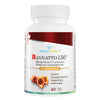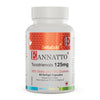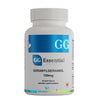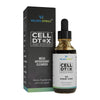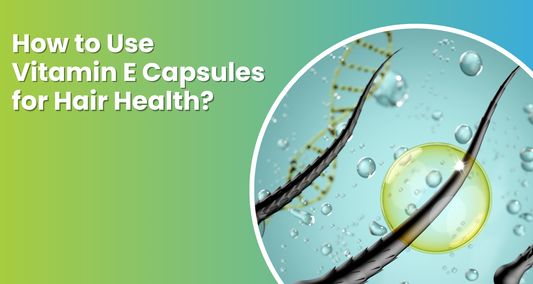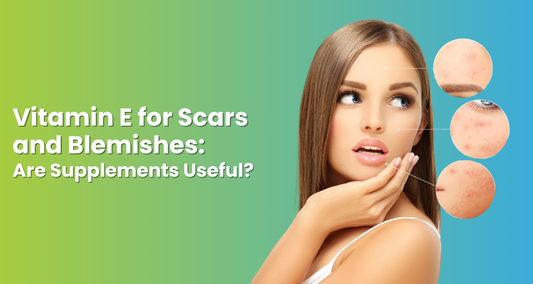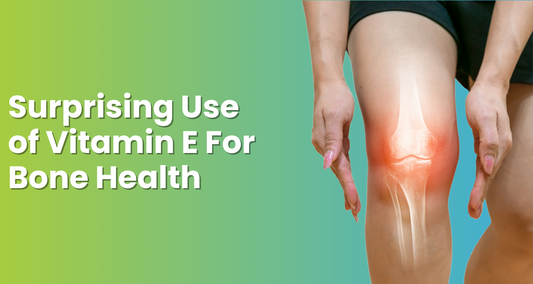Biotin, also known as vitamin B7, is a water-soluble vitamin that plays a crucial role in maintaining optimal health. It is essential for the body's metabolism, cell growth, and repair, and the maintenance of healthy hair, skin, and nails.
Research has shown that biotin offers a range of potential benefits for the body, including support for nerve function, regulation of glucose levels, and the promotion of a healthy immune system. However, biotin deficiency is also a possibility and can result in a range of adverse health effects.
In this article, we will explore what does biotin do for the body. Discover the various biotin benefits for the body, its vital role in overall health, dietary sources of biotin, and potential side effects and precautions that should be considered. We will also provide insights into the use of biotin supplements and the recommended daily intake of biotin for optimal health.
Key Takeaways:
- Biotin is an essential nutrient for maintaining optimal health.
- Addressing the question of what does biotin do for the body: it supports metabolism, cell growth, and repair, and helps maintain healthy hair, skin, and nails.
- Biotin deficiency can result in adverse health effects.
- Biotin can be obtained through diet or supplements.
- Consulting with a healthcare professional is important before making significant dietary changes or starting new supplements.
The Role of Biotin in the Body
Biotin, also known as vitamin B7, is a water-soluble vitamin that plays a crucial role in maintaining overall body health. It is involved in a myriad of important processes, from energy production and glucose metabolism to DNA replication and cell growth.
One of the key biotin functions is to help break down macronutrients such as carbohydrates, proteins, and fats, which the body then turns into energy. This metabolic process is essential for maintaining a healthy weight and preventing conditions such as diabetes.
Biotin is also critical for maintaining healthy hair, skin, and nails, as it promotes cell growth and repair in these areas. It supports the production of keratin, a protein that is essential for these tissues' strength and resilience.
Beyond these functions, biotin plays a vital role in maintaining a healthy nervous system and brain function. It helps synthesize neurotransmitters, which transmit signals between nerve cells.
Overall, biotin is an essential nutrient for maintaining optimal health and supporting various bodily functions. Ensuring an adequate intake of biotin through diet or supplementation is crucial for achieving these outcomes.
Biotin and Hair Health
Biotin is an essential vitamin that is responsible for maintaining healthy hair. One of the primary benefits of biotin is its ability to promote hair growth, improve thickness, and increase strength. It achieves this by helping to produce keratin, a protein that forms the structural basis of hair, skin, and nails. Biotin also improves the health of hair follicles, ensuring that they are in good condition to support hair growth.
In addition to promoting hair growth, biotin also helps prevent hair loss. Hair loss can be caused by a range of factors, including stress, hormonal imbalances, and nutrient deficiencies. Biotin helps counteract these factors by improving blood circulation to the scalp, reducing inflammation, and strengthening hair follicles. As a result, biotin can help prevent premature hair loss and promote healthy hair growth.
Biotin also improves the overall condition of hair. It helps reduce split ends, frizz, and dryness, resulting in healthier, shinier, and more manageable hair. Biotin can also help alleviate certain conditions that affect hair health, such as dandruff and scalp irritation.
To ensure optimal hair health, it is essential to consume an adequate amount of biotin. This can be achieved through a balanced diet that includes biotin-rich foods such as eggs, nuts, seeds, and leafy greens. Alternatively, biotin supplements can be taken to increase biotin intake. However, it is important to consult with a healthcare professional before taking any supplements to avoid potential side effects or interactions with other medications.
Biotin and Skin Health
Biotin, also known as vitamin H, is a water-soluble B vitamin that plays a crucial role in promoting healthy skin. Adequate levels of biotin in the body contribute to a glowing complexion and support the skin's protective barrier.
One of the key benefits of biotin for skin health is its ability to improve the skin's moisture retention. This improves the appearance of fine lines and wrinkles, leaving the skin looking plumper and more youthful.
Biotin is also known for its ability to alleviate certain skin conditions, including acne, rashes, and psoriasis. Its anti-inflammatory properties help to soothe irritated skin and promote healing.
In addition to its direct impact on skin health, biotin and body functions relation plays a crucial role that impacts the skin. For example, biotin is involved in the production of fatty acids, which are essential for maintaining healthy skin.
Ensuring an adequate intake of biotin through diet or supplements can help support healthy skin and alleviate certain skin conditions. Speak to your healthcare professional if you are considering taking biotin supplements.
Biotin and Nail Health
Biotin, which is also known as vitamin H, is an essential nutrient that plays a crucial role in maintaining healthy nails. Research suggests that biotin can promote stronger and less brittle nails while also improving their overall appearance.
Healthy nail growth depends on a range of factors, including diet, hydration, and proper nail care. However, if you're not getting enough biotin in your diet, you may experience weak, brittle nails that are more likely to break or crack.
Incorporating biotin-rich foods into your diet or taking a biotin supplement can help prevent biotin deficiency and support healthy nail growth. Some of the best dietary sources of biotin include eggs, nuts, seeds, and leafy greens.
If you're experiencing nail problems, it's essential to consult with a healthcare professional to rule out any underlying conditions or nutritional deficiencies.
Overall, biotin is an essential nutrient for maintaining optimal nail health. Ensuring adequate biotin intake can promote strong, healthy nails and prevent nail problems from occurring.
Biotin and Body Health
Biotin is a crucial nutrient that plays a vital role in overall body health, supporting everything from energy production to brain function and immune system support.
One of the main functions of biotin is its role in cellular metabolism. Biotin helps convert the food we eat into energy, which is essential for bodily functions and optimal health.
In addition to metabolism, biotin also contributes to maintaining healthy brain function. Biotin is involved in the production of neurotransmitters, which regulate the communication between nerve cells in the brain.
Biotin is also essential for maintaining a robust immune system. It helps produce white blood cells, which help the body fend off infections and diseases.
Overall, the importance of biotin in body health cannot be overstated. Ensuring an adequate intake of biotin through diet or supplementation is crucial for maintaining optimal health and vitality.
Biotin Deficiency: Signs and Symptoms
Biotin is an essential nutrient that contributes to numerous bodily functions, such as energy production, metabolism, and cell growth. However, biotin deficiency can occur when there is a lack of biotin in the diet or impaired biotin absorption by the body.
One of the most common signs of biotin deficiency is hair loss or thinning, which can affect both the scalp and other parts of the body that grow hair, such as the eyebrows and eyelashes. Likewise, biotin deficiency may lead to skin rashes or redness caused by inflammation. Other symptoms of biotin deficiency include brittle nails, dry skin, fatigue, and depression.
In rare cases, severe biotin deficiency can cause more severe health issues such as seizures, developmental delays, and neurological disorders.
If you suspect a biotin deficiency, it is best to consult with a healthcare professional before making any dietary changes or starting any new supplements. They can help identify the underlying cause of the symptoms and recommend the appropriate treatment.
Dietary Sources of Biotin
Biotin is a water-soluble B vitamin that is found in a variety of foods. The body doesn't store biotin, so it's essential to consume it from dietary sources regularly to maintain healthy levels.
Some excellent dietary sources of biotin include:
- Almonds, peanuts, and other nuts
- Seeds, such as chia and sunflower seeds
- Eggs, particularly the yolk
- Milk, cheese, and other dairy products
- Meat, including liver and pork
- Fruits, such as bananas and avocados
- Veggies, such as sweet potatoes and spinach
The recommended daily intake of biotin varies by age and gender. For adults, the recommended daily intake is 30 mcg per day. Pregnant and breastfeeding women require more biotin to support fetal development and milk production, respectively.
Incorporating these biotin-rich foods into your diet can help ensure you're getting adequate amounts of this important nutrient. However, if you struggle to meet your daily biotin needs through diet alone, a supplement may be a helpful option. Be sure to speak with a healthcare professional before starting any new supplements to ensure safe and effective use.
Biotin Supplements: Should You Consider Them?
If you're not getting enough biotin from your diet, supplements may be a good option to consider. Biotin supplements are available over-the-counter and come in various forms, including capsules, gummies, and tablets.
It's important to note that biotin supplements are not regulated by the FDA, so it's crucial to choose a reputable brand. Look for supplements that contain USP-verified ingredients, which ensures purity and potency. You can also consult with a healthcare professional to determine the best supplement for your needs.
Supplements can be particularly useful for individuals with a biotin deficiency or those experiencing hair loss, brittle nails, or other biotin-related health issues. However, for most healthy individuals, getting enough biotin from a balanced diet is sufficient.
It's also important to be mindful of dosage when taking biotin supplements. Taking too much biotin can result in adverse effects, such as acne, rashes, and digestive issues. Always follow the recommended dosage guidelines on the supplement bottle and consult with a healthcare professional if you have any concerns.
Overall, biotin supplements can be helpful for individuals with a biotin deficiency or those experiencing specific health issues related to biotin. However, it's important to choose a reputable brand and follow recommended dosage guidelines. In most cases, a balanced diet can provide sufficient biotin for optimal health.
The Recommended Daily Intake of Biotin
Biotin, also known as vitamin B7, is an essential nutrient that the body needs to function properly. The recommended daily intake of biotin varies depending on age and other factors.
For infants and young children, the recommended daily intake ranges from 5 micrograms (mcg) to 12 mcg per day. Adolescents and adults need more biotin, ranging from 30 mcg to 35 mcg per day.
Pregnant and breastfeeding women require even more biotin, with a recommended daily intake of 30 mcg to 60 mcg.
It's essential to meet these recommended daily intake levels to ensure optimal biotin levels in the body. Biotin can be obtained from a variety of dietary sources, including eggs, nuts, whole grains, and legumes.
If you struggle to get enough biotin from your diet, you may consider taking biotin supplements. However, it's crucial to talk to a healthcare professional before starting any new supplement regimen, as excessive biotin consumption can lead to potential side effects.
Potential Side Effects and Precautions
While biotin is generally considered safe and well-tolerated, some people may experience side effects.
Common side effects of biotin supplements include:
- Upset stomach
- Nausea
- Diarrhea
- Acne
- Allergic reactions (rare)
It's essential to follow the recommended dosages when taking biotin supplements. Too much biotin can cause skin rashes or worsen acne symptoms, while extremely high doses can result in more severe side effects, such as respiratory distress.
If you're taking any medications, it's crucial to speak with your healthcare provider before starting a biotin supplement. Biotin can interact with certain medications, including those for lowering cholesterol, anticonvulsants, and antibiotics.
Additionally, pregnant or breastfeeding women should consult their healthcare providers before taking biotin supplements. While biotin is generally considered safe during pregnancy and lactation, high doses may harm the developing fetus or nursing infant.
If you experience any troubling symptoms after taking biotin, discontinue use and consult with your healthcare provider immediately.
Conclusion
Concluding the most asked question of what does biotin do for the body: it is a vital nutrient that plays a significant role in promoting optimal body health. From promoting healthy hair, skin, and nails to contributing to overall bodily functions, biotin should not be overlooked. It is important to ensure that you are getting enough biotin daily through a balanced diet or supplementation, as a deficiency can lead to various health issues.
It is recommended to consult with a healthcare professional before making any significant dietary changes or starting any new supplements to ensure safety and efficacy. Additionally, it is essential to be aware of potential side effects and precautions associated with biotin consumption.
By incorporating biotin-rich foods into your diet and considering supplements when necessary, you can maintain optimal biotin levels and support your body's overall health and vitality. Remember to always prioritize your health and consult with a professional if you have any concerns or questions regarding biotin intake.
Frequently Asked Questions
What are the benefits of biotin for the body?
A: Biotin offers various benefits for the body. It promotes healthy hair, skin, and nails, supports metabolism regulation, cell growth, and repair, and maintains overall bodily functions. Biotin also plays a vital role in energy production, brain function, and immune system health.
What does biotin do for the body?
A: Biotin is involved in crucial functions in the body. It regulates metabolism, supports cell growth and repair, and aids in the breakdown of fats, carbohydrates, and proteins. Biotin also promotes healthy hair, skin, and nails, and assists in maintaining overall body health.
How does biotin affect hair health?
A: Biotin plays a significant role in promoting hair health. It enhances hair growth, thickness, and strength, prevents hair loss, and improves the overall condition of the hair. Biotin also nourishes hair follicles and promotes the production of keratin, a protein essential for healthy hair.
What does biotin do for skin health?
A: Biotin contributes to skin health in multiple ways. It helps maintain a glowing complexion, strengthens the skin's protective barrier, and promotes the production of fatty acids necessary for smooth and supple skin. Biotin can also help alleviate certain skin conditions and promote overall skin health.
How does biotin benefit nail health?
A: Biotin has positive effects on nail health. It promotes stronger and less brittle nails, improves their overall appearance, and helps prevent nail breakage. Biotin also aids in the formation of keratin in the nails, contributing to their strength and integrity.
What are the signs and symptoms of biotin deficiency?
A: Biotin deficiency can manifest in several ways. Common signs and symptoms include hair loss or thinning, skin rashes or dermatitis, brittle nails, fatigue, and muscle cramps. In severe cases, biotin deficiency can lead to neurological symptoms such as depression, hallucinations, and numbness or tingling in the extremities.
What are the dietary sources of biotin?
A: Biotin can be obtained from various food sources. Good dietary sources of biotin include nuts and seeds, eggs, dairy products, liver, organ meats, salmon, avocados, sweet potatoes, and cauliflower. Incorporating these biotin-rich foods into your diet can help ensure an adequate intake of this essential nutrient.
Should I consider taking biotin supplements?
A: Biotin supplements can be beneficial in certain situations. If you have a diagnosed biotin deficiency, your healthcare professional may recommend supplementation. Additionally, if you struggle to meet your biotin needs through diet alone, supplements can provide an extra source of this essential nutrient. Always consult with a healthcare professional before starting any new supplements.
What is the recommended daily intake of biotin?
A: The recommended daily intake of biotin varies depending on age and life stage. For adults, the adequate intake (AI) ranges from 30 to 35 micrograms per day. Pregnant women may require slightly higher levels, and breastfeeding women may need up to 35 micrograms per day. It's important to meet these biotin requirements through a balanced diet or supplementation.
Are there any side effects or precautions associated with biotin?
A: Biotin supplementation is generally safe when taken within the recommended dosage range. However, some individuals may experience mild side effects such as digestive issues or allergic reactions. It's essential to follow dosage guidelines and consult with a healthcare professional, especially if you have any underlying medical conditions or are taking medications, to avoid potential interactions or adverse effects.
Disclaimer: These statements have not been assessed by the FDA. The information contained within this page is for educational purposes only. It is not intended to replace the advice or attention of health care professionals.
